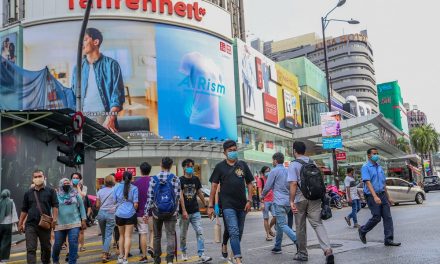Amid skill shortages in Malaysia, employers are generally positive about business outlook and salary increments in 2019. This is one of the key findings in the Hays Asia Salary Guide 2019, a report that highlights salary and recruiting trends based on responses from Hays Asia operating markets Mainland China, Hong Kong, Japan, Malaysia, and Singapore.
Malaysia’s businesses have seen a year of extended growth over the last 12 months, with three in five (62 per cent) of companies reporting increased business activity in 2018. On a slightly larger scale, most (72 per cent) also predict a continuation of heightened business activity in 2019, and as a result, nearly half (49 per cent) of them foresee an augmentation of permanent staff levels in the coming year.
Furthermore, two in five (39 per cent) of those surveyed expect the local economy to strengthen, an improvement from the 23 per cent who said the same in the survey last year.
Salaries
Employees in Malaysia may expect more generous salary increments compared to their counterparts across Asia. Close to half of Malaysian employers (48 per cent), which is ten per cent more than the Asia-wide average, predict that their staff’s salaries are likely to increase by above three per cent but less than or equal to six per cent.
More than half (55 per cent) of employees interviewed stated that they were ‘satisfied’ with their current remuneration packages, a substantial improvement from the 38 per cent the previous year. However, only four per cent of respondents claimed to be ‘very satisfied’.
“It is clear that while positivity surrounding salaries is up, there is still room for improvement,” says Tom Osborne, Managing Director of Hays Malaysia.
“With more and more employees leaving mostly due to the allure of better salary or benefit packages, companies looking to retain valuable employees should work on improving satisfaction rates where remuneration is concerned.”
Benefits and bonuses
Over the past year, the number of companies guaranteeing bonuses to all staff reduced slightly from 65 per cent to 63 per cent, compared to the year before. At the same time, there is also a decline (93 per cent in 2018 vs 87 per cent in 2019) in the number of employers giving benefits in addition to financial incentives, but the number remains high.
The most common forms of additional benefits are health and medical provisions (84 per cent), car/car allowance (51 per cent) and life assurance (40 per cent).
Skills Shortages
Employers remain concerned that skills shortages may affect the running of their operations. Almost all (94 per cent) of those interviewed expect a deficit of required talent to hamper the effective operation of businesses in 2019, and about seven in ten (71 per cent) employers confirmed that productivity has been negatively impacted in the past year.
In addition, confidence in the ability to recruit skills required to meet organisational needs in the coming year is down, with 50 per cent ‘confident’ and five per cent ‘very confident’, down from 59 and six per cent respectively in 2018.
Areas of greatest skills shortages
Most Malaysia employers have stated that the most sought-after skills are hard skills over soft skills (60 per cent vs 40 per cent respectively). Of the former, statistical analysis and data mining, project management, and computer skills were the areas of greatest demand. Of soft skills, problem solving, teamwork, and critical thinking abilities are most in demand, with majority of employers placing high importance in these psychological competencies.
The areas in which employers have had the most difficulty in recruiting are as follows:
- Accountancy and finance: middle management (nominated by 26 per cent of employers)
- Sales: entry level up to middle management (nominated by 24 per cent of employers)
- Sales: middle management (nominated by 23 per cent of employers)
- IT: middle management (nominated by 21 per cent of employers)
- Operations: middle management level (nominated by 18 per cent of employers)
- IT: entry level up to middle management (nominated by 18 per cent of employers)
The report was launched at an event in Kuala Lumpur on Thursday, 7th March 2019, with over 400 attendees including CEOs and senior HR professionals from various industries. Speaking at the event on the Malaysia Economic Outlook, Ali Salman, CEO of Institute for Democracy and Economic Affairs (IDEAS) says “Given the momentous political change that Malaysia has gone through last year, the economic policy discussions have taken a back seat for now, which has led to a decrease in the business confidence. However as economic fundamentals remain strong, economic growth is stable, surplus capital is available, and with institutional reforms in progress, the economic outlook will improve in the medium to long term.”
Also speaking at the event on Designing a Culture of Connection and Delight for the Future Organisation, Christoffer Erichsen, CEO of Human Inc says, “Although all companies are using ‘disruption’ and ‘innovation’ as buzz words, only a handful of them are on the actual journey of real transformation. At Human Inc we strongly believe that empowerment and focus on culture, co-creation, creativity & capability driven by HR are the very building blocks to affect this needed change so as to stay relevant for the future.”
Get your copy of the 2019 Hays Asia Salary Guide by visiting https://www.hays.com.my/salary-guide/ or by contacting your local Hays office.









